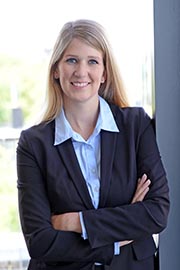18.01.2018
18.01.2018
Regional Court of Frankfurt introduces plan for an International Chamber for Commercial Matters

The Regional Court of Frankfurt (LG Frankfurt) has announced plans to introduce an International Chamber for Commercial Matters by 1 January 2018. The underlying idea of this project is to provide a new judicial structure in which proceedings can be conducted entirely in English. After two failed attempts to implement the English language as a second official language for court proceedings by way of legislative initiative, the Regional Court’s idea represents a step in the right direction. The commercial matter will be assigned to the International Chamber at one party’s request. Pursuant to the parties’ agreement, the proceedings, including the oral hearings, written submissions and the final judgement, may then be conducted in English.
Old wine in new bottles?
In a press release from 2 November 2017, the Regional Court’s president, Dr. Wilhelm Wolf, described this idea as an opportunity to strengthen the popularity of Frankfurt as a contractually agreed territorial jurisdiction for transnational litigation, especially in the light of Brexit. The idea of seeking to permit English as an alternative language in court proceedings in Germany is not new. Back in 2010, the Higher Regional Court in Cologne (OLG Köln) initiated a model project with the same goal. Both in 2010 and 2014, the Federal Council (Bundesrat) and a few federal states introduced a legislative initiative to change the Judicature Act (GVG) and the Code of Civil Procedure (ZPO) to implement English as an official language in German courts. However, as the government’s term of office expired, the legislative initiatives were discontinued.
Reform efforts throughout Europe
Interestingly, Germany is not the only country trying to increase its popularity as a territorial jurisdiction for court proceedings after Brexit. It is expected that the Dutch legislator will also consider a draft legislation with regards to the NCC (“Netherlands Commercial Court” – a special chamber in the Amsterdam district court) and the NCCA (“Netherlands Commercial Court of Appeal”). The procedure will be identical to the one laid out for the International Chamber for Commercial Matters in Frankfurt. Moreover, France is planning to set up an anglo-style financial disputes court with proceedings conducted in English and with judges with a special expertise in English common law.
Change in the law has to tackle legal hurdle
The plan of conducting court proceedings in English without a change of law faces a serious legal hurdle. According to Sec. 184 (1) GVG, the language of the proceedings is German. Therefore, all forms of communication between the court and the parties to the proceedings must be conducted in German. Otherwise, they are considered invalid. This rule must be interpreted in line with the principle of public transparency and the principle of a “fair trail” (Art. 6 I 1 ECHR and Art. 47 II CFR). Every person involved in a court proceeding is entitled to follow the proceedings at any time. The only exception to the rule can be found in Sec. 185 (1) GVG. According to this provision, if any person involved in the proceedings does not have full command of the German language, an interpreter shall be provided. The enlistment of an interpreter can only be omitted if every party to the proceedings speaks the respective foreign language (Sec. 185 (2) GVG). However, this is a protective provision for non-German speaking parties and does not aim at providing for proceedings in a foreign language or at increasing the popularity of Germany as a territorial jurisdiction. Therefore, Sec. 185 (2) GVG cannot be used to break the general rule of conducting proceedings in German. German remains the only valid language for proceedings, written submissions and judgements, as no changes to legislation have officially been passed yet.
Bottom line
All in all, the establishment of an English-speaking International Chamber for Commercial Matters is a step in the right direction. Especially with regards to the pressing challenges that Brexit poses on England and its judicial system as a preferred seat and jurisdiction for international business, few options to replace it seem more suitable than Frankfurt. Arguably, only the acceptance of English as a language for proceedings stands in the way. An International Chamber for Commercial Matters could strengthen Frankfurt - and Germany as a whole - as a place for litigation and as a location for business. It will be interesting to see what the operational structure and distribution of matters of the Regional Court in Frankfurt will look like in 2018 and which legal grounds it will base its new International Chamber for Commercial Matters on.
 | Dr. Richard Happ |
 | Luca Thönes, LL.M. |